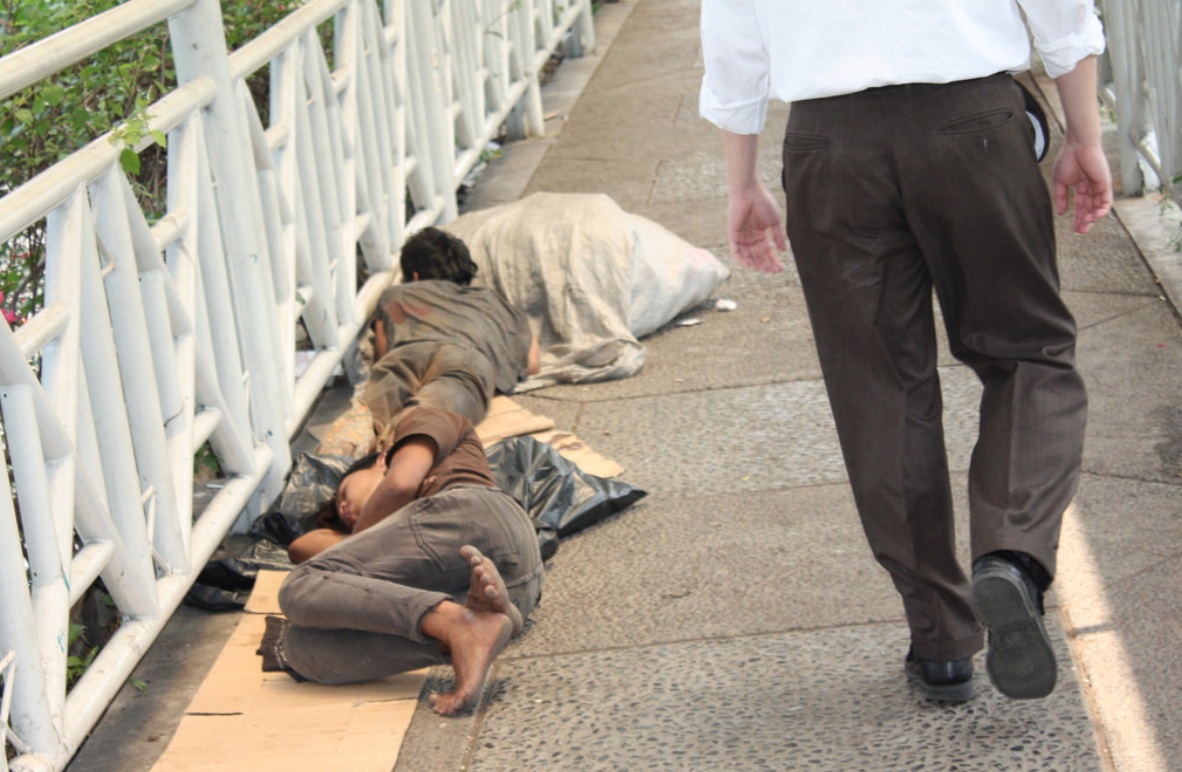Let’s Take a Step Back
It is important to realize that certain powers and privileges not only align with the damages that have been made, but with the steps toward action that have been made as well.

| Power and Privilege in Environmental Damages |
Here we can analyze privilege and power aspects that go into this. The globalization of course boosted the economy and trade because more goods were being produced, so a handful of elites were profiting from that (Shapiro, 2016). As China became more prevalent on an international playing field because their manufactured goods are so valued, they created more factories that used coal to run the manufacturing. They cleared more land for sweat shops where poor people of China were exploited, as well as more resources were diminished because of these huge factories.
Elites made profits based on these booming, industrial cities, while these poor, migrated people were marginalized and paid very low wages. The estimation that by 2030, 70% of China’s population will live in cities shows how urbanization contributes to the mass population increases in small cities, where cars, new diets, and an idea of the ideal “middle-class” household result in resource extraction and heavily polluted airs (Hsu & Baptiste, 2016). As city life creates even more of a divide between classes of people, the wealthy are able to recognize the pollution and environmental damage and leave, while immigrant populations are forced to stay and live damaging lifestyles because that is the only way they can afford to exist (Hsu & Baptiste, 2016). The ripple effect continues, as these lifestyles contribute to the CO2 emissions that cause climate change and the extraction of resources, like water and coal, that feeds their working lives and creates a world of pollution with scarce raw material.
| Power and Privilege within Activism, Health, & Energy Resources|

Power and privilege is all about access.
- Technology: Low-income schools and homes often lack access to technology such as air purifiers, as normal models cost around $150 and higher-end models cost upwards of $1,000 (Mullin, 2015). A price of $150 is no small amount in Beijing, and can actually account for over one-third of some workers’ monthly pay (Mullin, 2015). A transition to a renewable energy economy would be able to largely alleviate this health disparity between social classes.
- Renewable Energy: Well-off cities like Beijing have the resources and capacity for activism to shut down factories and transition to renewable energies at a much faster and larger scale than less wealthy cities. Polluting factories and their accompanying release of toxins are then displaced to surrounding areas, which are mostly rural, poor, and composed of ethnic minorities (Li, 2016).
- Work & Leisure: When the government puts hazard alerts out to stay inside, or to not send your children to school, or to not drive your car, it is usually the middle and upper class people who are able to do so. Poorer people can not afford to miss work because they have to watch their children, or because they are not permitted to telecommute, or because they are paid an hourly wage (Mullin, 2015). Lower-income citizens also do not have extra leisure time to devote to advocacy for pollution control or renewable energy, as they are simply focused on getting food on the table. Again, a transition to a clean energy economy would eliminate these detrimental element of class disparity in Beijing.
- Authority: China’s authoritarian but decentralized political system makes cooperation on energy issues difficult. Beijing is often incapable on following through on its international obligations because local government officials have strong economic incentives to maintain and proceed to grow their economic standing. Even though Beijing has implemented a number of renewable energy laws, a lack of transparency and accountability overrule their implementations (Shapiro, 2016). This allows for damages to continually effect poorer and less privileged people, as the rich are still able to proceed with their businesses and use of fossil fuels.
__________________________________
References
Hsu, C., & Baptiste, A. (2016, October 31). The Politics of the Environment – Global Environment Movement. Lecture presented in Colgate University, Hamilton
Li, J., Xia, X., Chen, G., Alsaedi, A., & Hayat, T. (2016). Optimal embodied energy abatement strategy for Beijing economy: Based on a three-scale input-output analysis. Renewable & Sustainable Energy Reviews, 1602-1610. doi:10.1016/j.rser.2015.09.090
Mullin, K. (2015, December 12). Being Proletarian During Beijing’s Airpocalypse. Retrieved December 07, 2016, from http://foreignpolicy.com/2015/12/12/being-a-proletariat-during-beijings-airpocalypse-china-smog-class-inequality/
Shapiro, J. (2016). China’s Environmental Challenges.
Images
Buticchi, P. (n.d.). Poor & Rich [Photograph]. Flickr. https://www.flickr.com/photos/priscillabuticchi/4206257948/in/photolist-4d6UtA-8j7do2-4xZZ7p-qwr5b6-5pdDwR-ek1VTG-5D2Yxh-e9JaFj-6obbeP-6TN6jp-a3aTUe-ovECkq-frbhrb-7pGaWL-dh9eZe-b8Totc-fLjYTs-cBgqgu-6BtW4a-nRM23R-7ojfMs-iexruW-qmn2Mf-aMJa9P-5NEr8s-iABPRg-6jn4xG-pyJgTX-5sLNFX-dzwpWY-o6fWNq-b8szDg-ekGAme-bDgG62-riEkXY-nE66ur-six76a-qeye89-oPnrc4-gWMJpP-kYSNQR-nkfgjN-3oiFD-rchSaX-4gNcn8-6vAYgq-56xKL8-7eNPw2-5YmxsQ-6rJWYP
Sund, S. (n.d.). Renewable [Photograph]. Flickrhttps://www.flickr.com/photos/sheila_sund/27459069725/in/photolist-HQsULD-5aTF9S-4vAf7x-i2nhun-6ZCURo-asXwA7-mMb6LJ-5TBosK-p1pDcX-6tri2x-rM4eQG-GfMs5S-pS6JDz-5QqDor-5bmAMo-4Y3YqE-8ixzAm-qyNczM-pwrdnG-7Mwr56-9D2Dsa-nk7UHZ-tPWbW-oMFENg-rthvyR-s97dwF-af6Zhj-gVc5WY-9D2Gcz-9D5BAY-q8aqAM-9D5B8U-6WtNku-appPDs-9W8vMU-9D2G4F-agzPmy-5fq76b-eohJRq-8VvMx8-pUv6Nw-6ZbuX1-9D5yNq-4LzzZC-rrGLrQ-a6AHh9-9D2GDv-3tk3ET-acrPu2-9D5ABS
